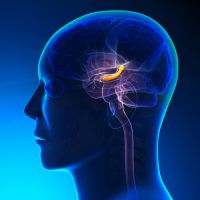Scientists have found that head injuries can damage hundreds of genes leading to an increased risk of brain disorders like autism and diseases like Alzheimer’s. Brain trauma can make damaged genes produce irregular proteins which are thought to be a cause of Alzheimer’s. Scientists have discovered a set of master genes that could lead to new drugs to treat brain diseases, and future research could pay off with new compounds and foods that can repair the damaged genes and fight disease. There is much to be learned about why brain injury patients like soldiers and football players go on to develop serious neurological ailments as they get older. The study was published in the journal EBioMedicine.
Genes from Lab Rats have Human Counterparts
In an experiment on lab rats, researchers put 20 rats in a maze designed to challenge their memories. They induced brain injuries in 10 of them afterward and ran them through the maze again. As expected, the brain injured took more time to finish. From the damaged rats, scientists analyzed the genes from the hippocampus (268 genes altered) and white blood cells (1215 genes altered). It was a major surprise to the team that there were so many genes altered in the white blood cell samples.
Researchers found a dozen of these altered genes that could be used in future blood tests to diagnose brain trauma in patients. These few genes could also be used to test if individuals are predisposed to Alzheimer’s disease. More than 100 altered genes from the rats have human counterparts that have been associated with psychiatric disorders and Alzheimer’s, and four of these genes have been linked to PTSD.
Research for New Drugs & Early Diagnosis Tests
The new study has given hope for novel ideas to help brain injury patients. Discovering the genes that govern processes in the body like inflammation, cell communication, and metabolism could lead the way to new treatments. Another exciting possibility for new drug treatments is modifying master genes to cause changes in hundreds of other genes associated with brain diseases and disorders. This could lead to new drugs to treat PTSD, Alzheimer’s, Parkinson’s, stroke, autism, schizophrenia, and depression.
In a 2016 experiment, it was discovered that an omega-3 fatty acid (DHA), was responsible for reversing damage in hundreds of genes, and a master gene called Fmod was identified. Not all brain injuries lead to the same diseases, but it is now clear that severe brain trauma can lead to a cascade of damaged genes. With this new research, brings new hope for treatment programs and early diagnosis tests for diseases common in post brain injuries.




